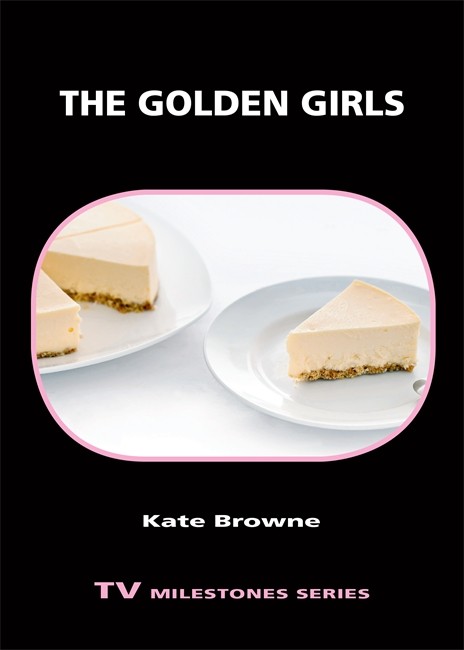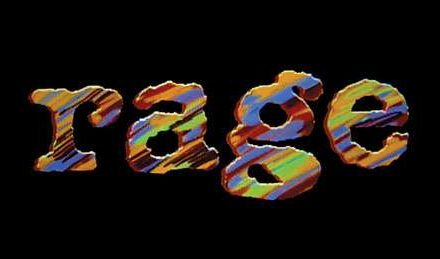A few months ago, I was holding a book that I was going to review. I noted with a start the sheer pleasure of handling it. Everything – from the cover to the evocative illustrations to the quality of the paper to the clear typeface – was aimed at making this book an aesthetically pleasing experience. The book was Landcapes of Detectorists, published by Uniform Books in Devon and fortunately the essays in the book were as good as my initial impression.
I realised that holding this book crystalised some thoughts about academic publishing which had been boiling up for some time. Since 2017, I have been book reviews editor for Critical Studies in Television, a post which is demanding but enjoyable and made possible by the great help I get from Richard Hewett and Amy Harris and of course from our reviewers. This has given me a view of how academic publishing has been changing very rapidly and how little it now serves its authors and readers.
First of all, price. Landcapes of Detectorists was sold at the very reasonable price of £12. Compare that with the price for most academic books. Recently we reviewed two Routledge books priced at £120. We’ve reviewed Palgrave books at £109.99, £99.99, £89.99 (I love it that they seem to think that penny should make a difference). A recent offering from Bloomsbury was £96. An Intellect book entitled Radical Mainstream was £90 which should ensure it can’t be bought be independent filmmakers which it was discussing. Only one of these also had a paperback version which was actually the same price (though most did have a cheaper e-version of which more later). When considering a manuscript for publications, publishers often ask for comments on the proposed readership or the market for the book. When giving my opinion on such matters, I now comment that this will depend on price and that current pricing strategies seemed to be designed to restrict the book’s readership. The assumption is that such prices are aimed at exploiting libraries but I suspect that many libraries balk at this. A colleague recently told me about trying to get an expensive Routledge hardback through inter-library loan, only to be told by their university library that that no other library had it.
The flash sales. One consequence of the high prices is that your email box or Facebook page is likely to be besieged by publisher hawking books by reducing prices by 20, 30, 50% – LIMITED OFFER, BUY NOW, CELEBRATE INTERNATIONAL WOMENS DAY or GUY FAWKES or DIWALI. But this is the only way in which it might be possible to buy a book. Click here or you’ll miss it.
Your access to this price is arbitrary and depends on you seeing the offer before it disappears. What a tawdry and unreliable way to offer scholarship, knowledge, new ideas and informative analysis to readers.
The e-book. Over the last year, the pandemic has increased the rush towards e-books, not as an alternative but the only way of reading a book. We try hard to offer our reviewers the format of their choice; they aren’t, after all, being paid to publicise the publishers’ wares. But Springer (which covers Palgrave) has a policy of only providing e-versions and others are now doing this because of the pandemic. Will they revert to previous practices? Unlikely. Of course, I recognise that for some reviewers an e-book may be preferable but at CST we do consider that reviewers must have the benefit of reading in a format they find comfortable. Indeed, I would suggest that the practise of only providing an e-book is discriminatory since some readers find reading long texts in electronic form challenging and, in some cases, impossible. This is often assumed to be just a problem for older readers but those who have dyslexia often find reading e-books at best difficult and at worst impossible and thus the decision of publishers to offer us only e-books could be described as discrimination on the grounds of disability.
Breaking up the book. The execrable practice of selling not books but chapters from single-authored books is being driven by the mammoth conglomerate, Springer. Of course, if a book costs £80 or so, it might seem reasonable to buy just a chapter for £20. Here’s an example, chosen only for the appropriateness of the title. As a teacher, I spent quite a lot of time persuading students from first years to PhDs that their essay, dissertation or thesis should have an overall argument running through it to which each section or chapter made a contribution. But the pleasure of making (and reading) an argument that way is clearly on the wane and I have even seen books in which each chapter has its own abstract and key words as if it were a standalone article.
Editing. As a book reviews editor, I get good support from Sage employees, working in New Delhi, who help produce our journal and there is a tradition of authors thanking publishers for editorial support. But editorial support from publishers may be becoming rather rare. Interestingly, in a recent London Review of Books (4th March), two reviewers of biographies of Sylvia Pankhurst and Patricia Highsmith explicitly criticise the sloppiness and mistakes which they ascribe to lack of editing by the publishers, Bloomsbury. I suspect that most of the authors we publish are assiduous in their attention to detail but I would be very interested to know how much editorial support is now offered from within the publisher (rather than, as is sometimes the case, being farmed out to academic volunteer readers).
Open access. The big unknown for me but as a humanities scholar without research grants (and institutional support) it doesn’t sound good news to me. See this interesting report: Kember (2019). ‘Critical Issues in Open Access and Scholarly Communications Report’.

Fig. 3: book cover of The Golden Girls, part of the TV Milestone Series.
All of this points to the demise of the monograph, long predicted but by now perhaps a real possibility if these publishers carry on in this way. I note now a good deal of emphasis on what Mark Betz called ‘Little Books’ (Inventing Film Studies. ed. / Lee Grieveson; Haidee Wasson. Durham: Duke University Press, 2008.). We are printing reviews from the Wayne University Press’s ‘TV Milestone’ series which itself is a version of the BFI ‘TV Classics’, now languishing with Bloomsbury which however is launching a new short book series on Film Auteurs. I will say that University Presses, particularly those in the US, have a much better record on these matters even in these difficult times. Pricing is more reasonable as is soft cover publication. Recently, the University of Illinois Press went to a great deal of trouble to ensure that our reviewer got a hardback copy of Television and the Afghan Culture Wars. It won’t of course affect the views of our reviewer but it was much appreciated.
I am sure that much of this has been discussed elsewhere, perhaps in Publishing Studies. If anyone has any references to good material, I’d be happy to have them.
Christine Geraghty is Honorary Professorial Fellow at University of Glasgow. Her publications on television include a contribution to the 1981 BFI monograph on Coronation Street; Women and Soap Opera (Polity, 1991) and My Beautiful Laundrette (IB Tauris, 2004). Her BFI TV Classic on Bleak House was published in 2012 and she has continued to make a major contribution to Adaptation Studies. Most recently, she has published an essay on BAME casting in the 2010s in the journal, Adaptation . She is Book Reviews editor for Critical Studies in Television. Her essay on ‘Filming with words: British Cinema, literature and adaptation’ appears in Companion to British and Irish Cinema, John Hill (ed), Blackwell Wiley, 2019.









Dear Christine, thank you so very much for this insightful read! So many aspects in your post that make for a rather depressing picture of the overall situation around academic publishing, particularly with regards to big publishers… but important to have these spelled out and made explicit!
I do think this is quite an untenable situation, particularly for scholars without formal institutional affiliation, research grants or other kinds of financial support, and the funder-mandated call for open access, which, although laudable in principle, will be difficult to maintain if big publishers are allowed to continue with their rampant practice of turning this into yet another highly-profitable business.
The sheer absurdity of it has just recently led to a campaign (and webinar) led by university librarians across the UK who are, under the banner of #eBookSOS, calling for help because things have become even more sustainable during the pandemic than it had been before…
Maybe as a silver lining, and with a particular focus on the open access aspect, I’m hopeful that not all is lost, as there are pockets of activity that are seeking to develop alternatives to the profit-oriented status quo. The common denominator of these alternative initiatives is to develop a more equitable academic-led vision for open access book publishing in the Humanities and Social Sciences. These range from small, scholar-led publishers such as mediastudies.press, to the interconnected efforts sought by academic-led cooperative projects such as COPIM (COI note: I’m involved in the latter). But these are of course dependent on more widespread support and uptake of academics out there, to work towards shifting publishing practices away from the unbelievably expensive status quo that is so tremendously lucrative for big publishing… see e.g. Prof. Eve’s very recent RLUK21 presentation on that matter.
As an outsider to academic publishing, THANK YOU SO MUCH for just affirming and explaining some of the preculiarities of it all. I know that there’s usually a reason behind something not appearing to make sense – and the answer is that it’s probably a bad reason or a not-terribly-robust reason.
But – yes – this gives me an awful lot of insight and I can well understand all the frustrations bound up in this field.
A wonderful piece – thanks for writing it!
All the best
Andrew